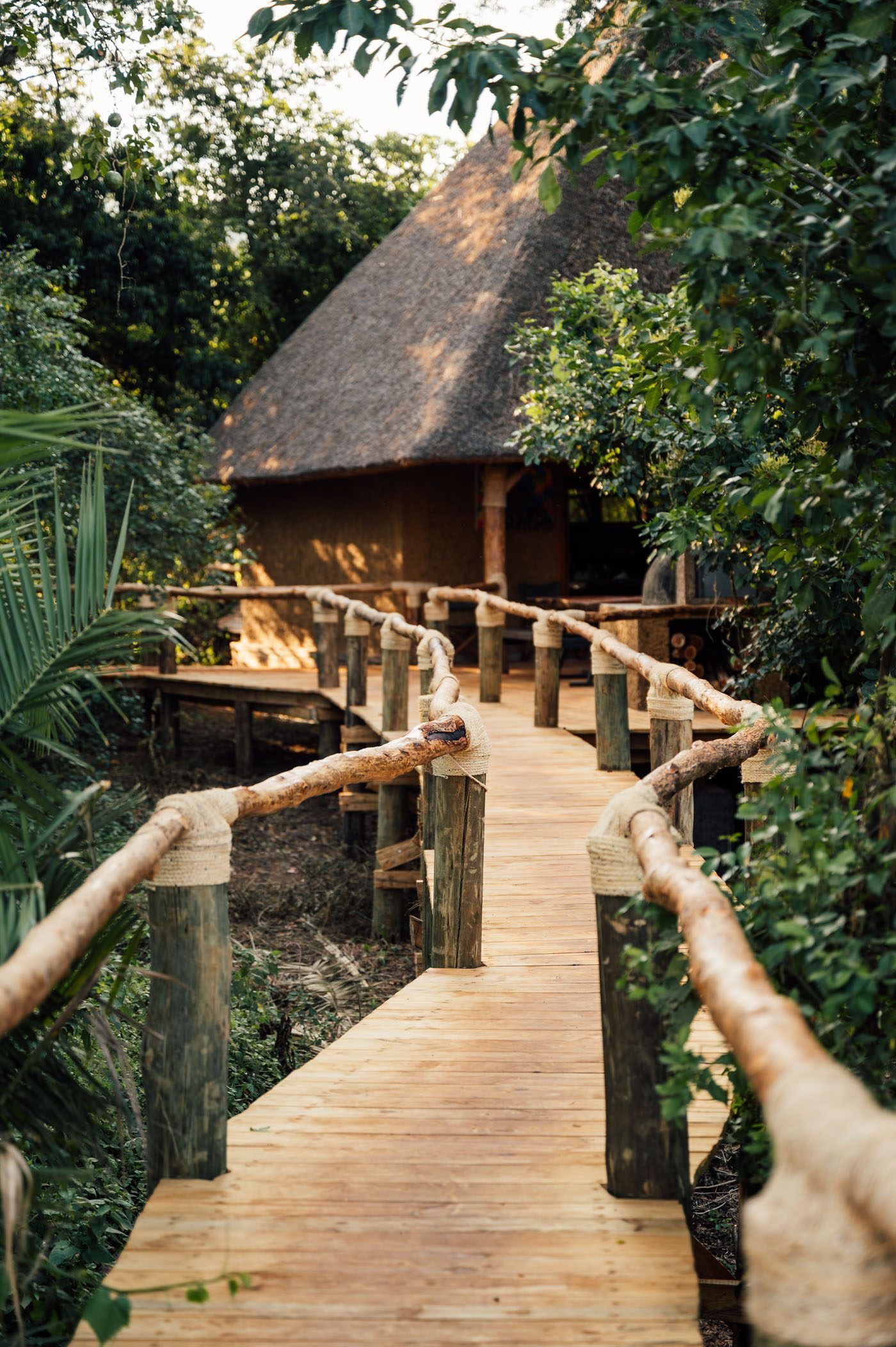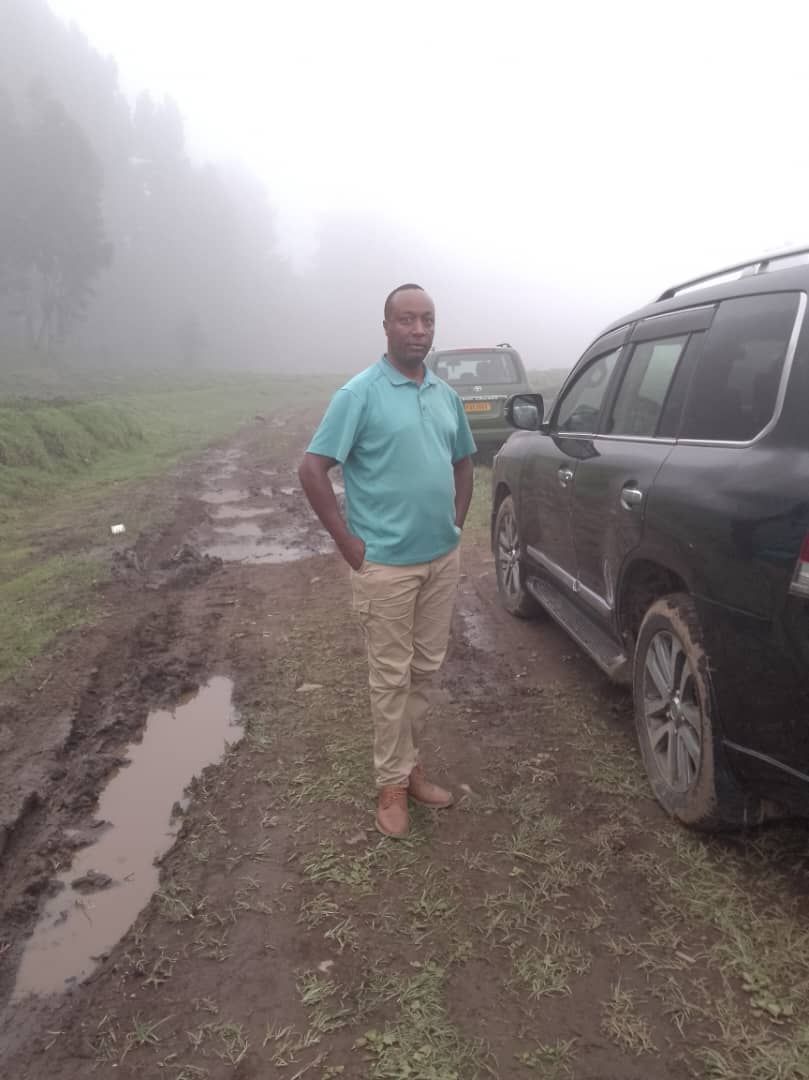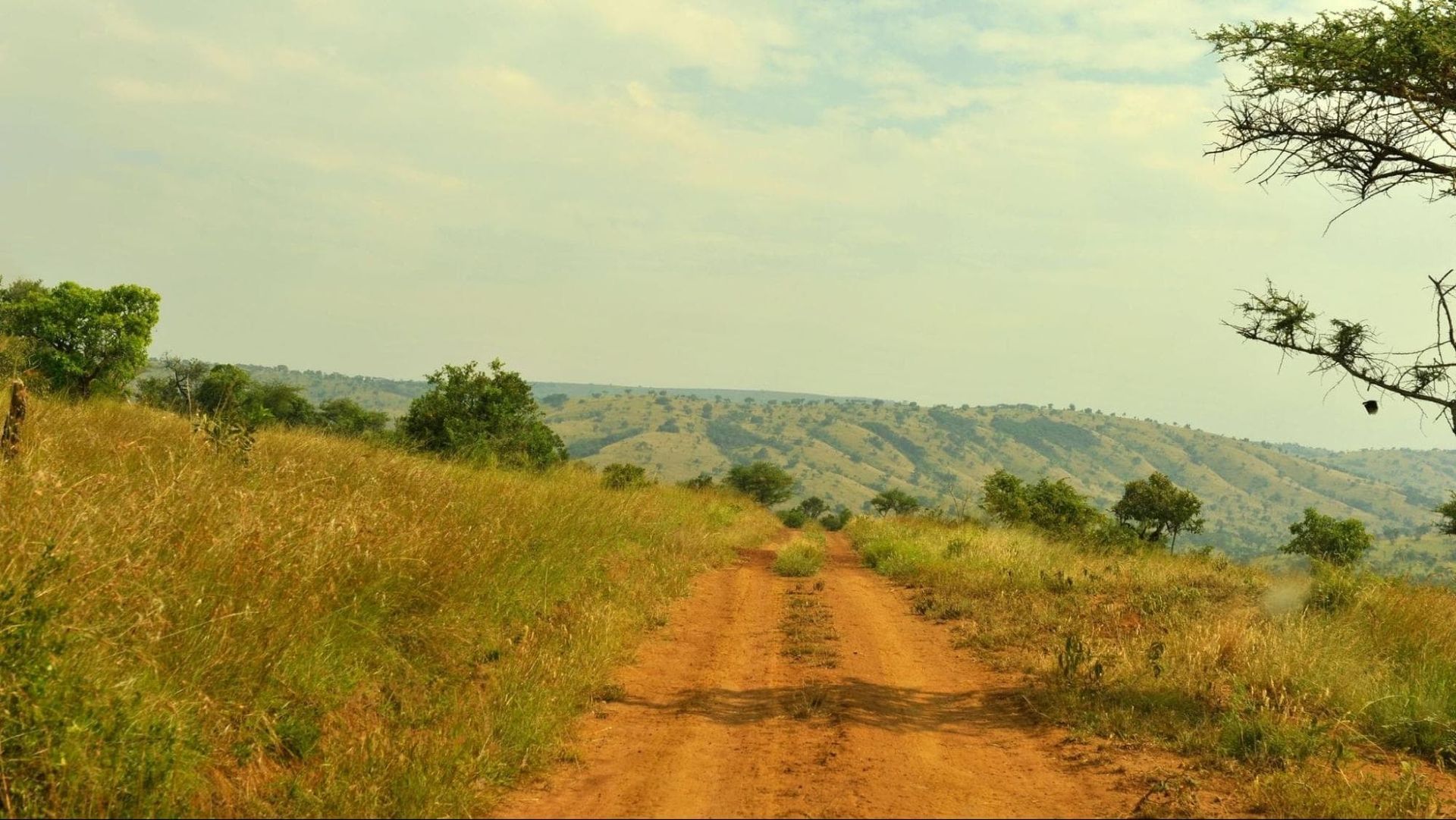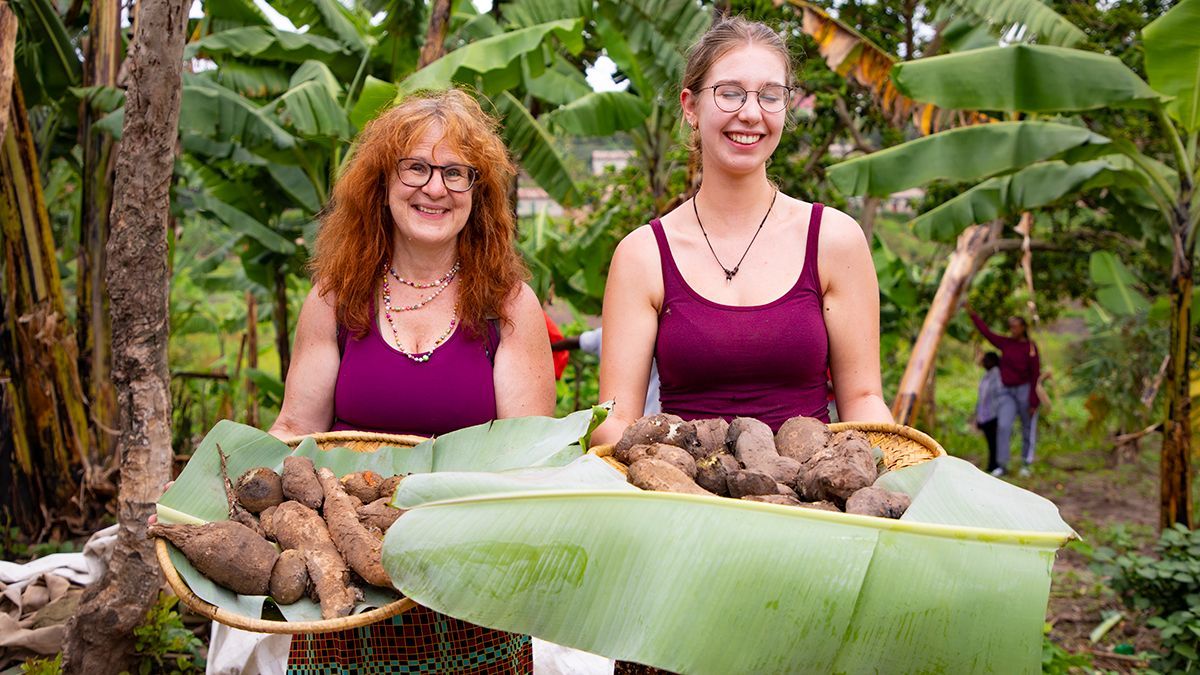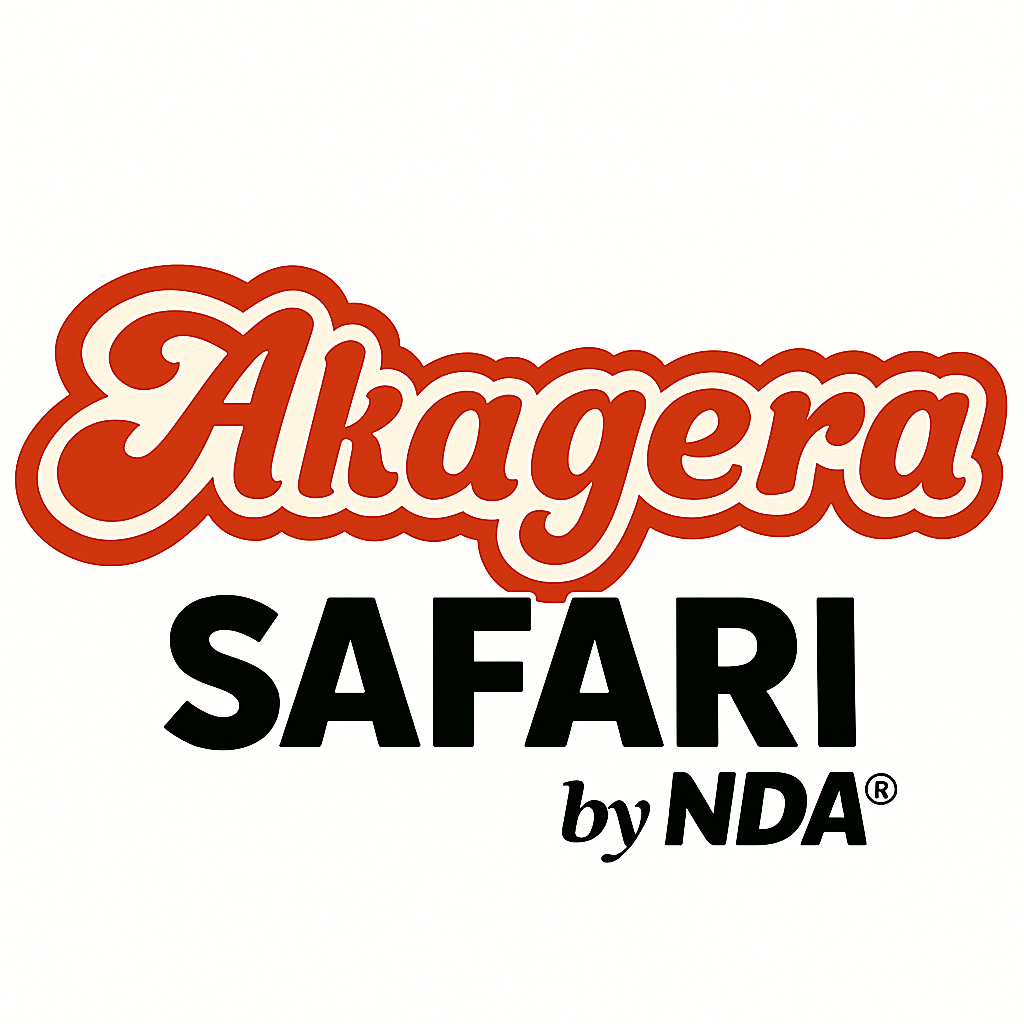Rwanda Safari Guide: Everything You Need for Your First Trip
Most people come to Rwanda for the gorillas.
They leave their Rwanda safari remembering something entirely different.
Yes, you'll remember that hour sitting meters away from a silverback, watching a baby gorilla tumble through the vegetation. You'll remember the lions in Akagera's northern plains, the chimpanzees you earned in Cyamudongo's uncharted forest.
But what stays with you from your Rwanda safari- what changes you - isn't what you came to see.
It's the conversation with a survivor and a perpetrator sitting side by side, genuinely rebuilding community together. It's understanding that every park fee you paid on your Rwanda safari feeds into a revenue-sharing program that's invested $4.4 million into communities adjacent to the parks since 2005. It's recognizing that Rwanda's real story isn't about wildlife - it's about what happened when a country that had every reason to stay broken chose something different.
Come for the gorillas. Stay for the story.
Now, here's everything you actually need to plan your first Rwanda safari.
You've spent hours researching Rwanda safaris. Gorilla permits are $1,500. Akagera safari packages range from $200 to $800. Nyungwe tours are all over the map. TripAdvisor reviews contradict each other.
By now, you're more confused than when you started.
This Rwanda safari guide cuts through the noise. No hotel recommendations. No tour company marketing. Just straightforward advice based on what first-time Rwanda safari visitors actually need to know - and what's frustratingly missing from every other guide online.
Rwanda Safari Parks: The Three You Need to Know
Rwanda safaris center around three major national parks, each offering completely different experiences:
Volcanoes National Park- Mountain gorilla trekking and volcano hiking in the northwest (2.5 hours from Kigali)
Akagera National Park- Big Five wildlife safaris in the east (2.5 hours from Kigali)
Nyungwe Forest National Park- Chimpanzee tracking and canopy walks in the southwest (6-7 hours from Kigali)
The entrance fees might look affordable at first glance - until you realize they range from $35 for boat rides at Akagera to $1,500 for gorilla trekking permits.
Free Rwanda Tourism Destination Maps (Download Now)
To help you plan your Rwanda safari, I'm sharing the official tourism destination maps I created during my time as Rwanda's Tourism Destination Manager. These are the maps we developed to help visitors navigate Rwanda's parks and regions - and now you can download them for free:
Download your free Rwanda tourism maps:
- Complete Rwanda Tourism Destination Map
- Rwanda Safari Highlights
- Akagera National Park Map
- Akagera & Muhazi Destination Highlights
- Volcanoes National Park Map
- Volcanoes Destination Highlights
- Nyungwe National Park Map
- Nyungwe Destination Highlights
- Kigali City Map
- Kigali City Tour Highlights
- Rwanda Birding Map
- Rwanda Birding Sites
- Rwanda Cultural Tourism Map
- Rwanda Cultural Sites
- Rubavu Destination Map
- Rubavu & Lake Kivu Tour Highlights
- Karongi/ Kibuye Destination Map
- Karongi Destination Highlights
Print them before your trip or save them on your phone for offline use. These maps include details you won't find on Google Maps.
Best Time for Your Rwanda Safari
Rwanda's parks are open year-round, but timing affects your experience and costs.
Dry Season (Best for wildlife viewing): June-September & December-February
- Easier gorilla and chimp tracking - less mud, clearer trails
- Better wildlife spotting in Akagera - animals gather at water sources
- Peak season pricing applies
- Gorilla permits book out 6+ months in advance
- Roads in better condition
Wet Season (Budget-friendly): March-May & October-November
- 30% discount on gorilla permits available (with conditions)
- Fewer tourists, more availability
- Lush, green landscapes
- More challenging hiking conditions - trails get muddy and slippery
- Some roads to Cyamudongo Forest can be difficult
- Wildlife harder to spot in Akagera (animals disperse, vegetation is thick)
My recommendation: If gorilla trekking is your priority, book dry season 6+ months ahead. If you're flexible and want to save money, wet season works - just be prepared for mud and bring proper rain gear.
Exception: Bird watching is actually better during wet season (November-April) when migratory species are present. Download the free Rwanda Birding Map above if this is your focus.
But here's what no Rwanda safari guide tells you upfront: the biggest cost of your Rwanda safari isn't the permits. It's the transportation.
Rwanda Safari Costs: The Real Cost Driver (And How to Cut It In Half)
Most Rwanda safari costs don't go to park fees or permits. They go to transportation.
Safari cars with driver-guides average $350-400 per day. These custom-built vehicles can cost up to $120,000 to make and seat 7 passengers. If you're traveling solo or as a couple, you're paying for all those empty seats.
Here's the truth about which vehicles you actually need for your Rwanda safari - and where you can save serious money:
Safari Car (Open Roof): $350-400/day
Only needed for: Akagera National Park safaris
This is the classic safari vehicle with the pop-up roof for wildlife viewing. It's essential for Akagera safaris because you need that elevated viewing position and open top for photography.
Money-saving strategy for Rwanda safaris:
- If doing only a 1-day Akagera safari: Book a group safari to split the 7-seat cost among other travelers
- If doing a multi-day Rwanda safari (multiple parks): Start with Akagera on a group tour if possible, then use a Landcruiser for the rest of your trip
4x4 Landcruiser: $200/day
The smart multi-day Rwanda safari choice
If you're visiting multiple parks over several days and only doing a 1-day Akagera safari, consider this strategy: Join a group Akagera safari for that one day, then hire one Landcruiser to handle everything else - Volcanoes gorilla trekking, Nyungwe chimpanzee tracking, and all the driving between parks.
One vehicle, one driver-guide who knows your schedule. Simpler logistics, lower total Rwanda safari cost than switching vehicles.
Specifically needed for:
- Volcanoes National Park(gorilla trekking - no exceptions)
- Nyungwe National Park(chimpanzee tracking in Cyamudongo Forest)
- All the driving between parks on multi-day Rwanda safaris
For chimpanzee tracking, you'll be on an off-road, rocky, uneven road to Cyamudongo Forest that gets seriously muddy when it rains. A regular SUV won't make it.
Regular SUV: $150/day
Works for:
- Nyungwe National Park trips (canopy walk, waterfall hikes, other nature trails - NOT chimpanzee tracking)
If you're only visiting Nyungwe and not doing chimpanzee tracking, a regular SUV handles those roads perfectly fine.
Volcanoes National Park Transport: It's Complicated
Which vehicle you need depends entirely on your specific activity:
- Gorilla trekking: 4x4 Landcruiser. No exceptions.
- Volcano hikes: Small SUV works for some, motorbike for others, park-and-walk shortcut available.
- Golden monkeys: 4x4 Landcruiser.
The details matter - permit availability, trailhead, guide transport needs all factor in.
Complete breakdown: Volcanoes National Park Transport Guide
Public Transport: $10 round trip
Works for: Nyungwe National Park visits (canopy walk, waterfall hikes, nature trails only)
If you're only visiting Nyungwe and not doing chimpanzee tracking, public transport from Nyabugogo bus park in Kigali gets you right to the park entrance for about $10 round trip.
Not recommended for chimpanzee tracking: You need to be at Cyamudongo Forest at 4:30 AM, which public transport can't accommodate.
The Bottom Line on Rwanda Safari Transportation Costs
A typical 5-day Rwanda safari visiting all three parks could cost you $2,000+ in transportation if you book a safari car for everything.
Smart Rwanda safari strategy: Group Akagera safari (1 day ~$200-300 per person including transport), then one Landcruiser for Volcanoes and Nyungwe (3-4 days at $200/day = $600-800). Total transportation: $800-1,100 instead of $2,000+.
Rwanda Safari Prices: What You'll Actually Pay for Permits and Park Fees
Now that you understand Rwanda safari transportation costs, here's what the actual park experiences cost. The pricing structure varies significantly between parks, which adds to the confusion.
Important Distinction: How Rwanda Safari Park Fees Work
Volcanoes National Park: Your permit price INCLUDES park entry. Pay once, you're done.
Akagera and Nyungwe National Parks: Park entrance fees are charged SEPARATELY from activity fees. You pay to enter the park, THEN pay for each activity.
Another critical detail for Rwanda safari planning: Both Akagera and Nyungwe charge entrance fees per night(not per day). The fee structure:
- Night 1: $100
- Night 2: $50 (50% discount)
- Night 3: $50 (50% discount)
- Nights 4-7: Free
What this means for your Rwanda safari budget: If you stay inside the park, you pay once and can do activities on multiple days. If you stay outside the park, you're considered a "day visitor" and pay $100 every single day you enter.
Volcanoes National Park Rwanda Safari Prices
Mountain Gorilla Trekking: $1,500(all visitors, includes park entry)
- Minimum age: 15 years
- Maximum 8 people per gorilla group per day
- One hour with the gorillas after you find them
Volcano Hikes: $55-$100(includes park entry)
- Mount Bisoke: $75
- Mount Karisimbi (2-day): $400 (includes camping)
- Mount Muhabura: $100
- Dian Fossey Tomb: $75
Golden Monkeys: $100(includes park entry)
- Minimum age: 12 years
- 16 people per trek
Rwanda Safari Low Season Discount: 30% off gorilla permits ($1,050 instead of $1,500) during November-May IF you're also visiting Akagera or Nyungwe for minimum 2 nights/3 days. You must provide proof of accommodation payment.
Akagera National Park Rwanda Safari Prices
Park Entry (International Visitors):
- 1 night: $100
- 2 nights: $150($100 + $50)
- 3 nights: $200($100 + $50 + $50)
- 4+ nights: No additional fees
Activities (separate from entry):
- Boat rides (scheduled): $35 morning/day, $45 sunset
- Night game drives: $40 per person
- Behind the scenes tour: $25 per person
- Game drive (park-operated): $200 half-day, $350 full-day
Vehicle fees:$40 per vehicle (foreign registered)
For complete Akagera safari pricing and activity details: What Most Akagera Safari Operators Won't Tell You
Nyungwe National Park Rwanda Safari Prices
Park Entry (International Visitors):
- 1 night: $100
- 2 nights: $150($100 + $50)
- 3 nights: $200($100 + $50 + $50)
- 4+ nights: No additional fees
Activities (separate from entry, includes guide):
- Chimpanzee tracking: $150
- Canopy walkway: $40
- Waterfall hikes: $40
- Other nature trails: $40-$60
- Colobus monkey tracking: $40
Accommodation inside the park: Nyungwe has guesthouses (Uwinka and Gisakura) ranging from $95-$250 per person per night depending on season and occupancy.
Critical detail: Gisakura Guest House kitchen closes at 18:00. Order dinner on time or you're chimp tracking at 4:30 AM on an empty stomach.
Complete Rwanda Safari Pricing Details
For comprehensive pricing including resident rates, student discounts, group rates, and all activity options:
- Volcanoes & Rwanda National Parks Activities & Filming Permits PDF
- Nyungwe National Park Full Pricing PDF
- Akagera National Park Full Pricing PDF
Rwanda Safari Planning: How Long You Actually Need (And My One Critical Rule)
Here's the rule I established as Rwanda's Tourism Destination Manager, and it's served Rwanda safari travelers well: The activity should take at least as much time as the drive to get there.
If you're spending 6 hours on the road, the experience better be worth 6+ hours. Otherwise, you're wasting your time.
Akagera National Park Safari: 2.5 Hours from Kigali
Minimum time needed: 1 day (can be done as a day trip)
The timeline for Akagera safari:
- 2.5 hours drive from Kigali to park entrance
- 30 minutes driving inside park to reception
- 30 minutes check-in and briefing
- 7-8 hours actual safari time
- 2.5 hours return to Kigali
Total: 13-14 hour day
Sweet spot for Akagera safari: 2 days, 1 night inside the park
- Gives you evening sunset boat ride
- Early morning game drive when wildlife is most active
- Full south-to-north circuit with time in the Big Five territory
- Leave wanting more instead of exhausted
Who it works for: Everyone - no age restrictions, no fitness requirements. You're in a vehicle the entire time. If you have back problems, book a comfortable air-conditioned luxury SUV that absorbs the off-road bumps better.
For complete Akagera safari planning details: What Most Akagera Safari Operators Won't Tell You
Volcanoes National Park Rwanda Safari: 2.5 Hours from Kigali
Can be done as day trips: Yes, all activities
The Rwanda gorilla trekking experience: Mud, Sweat, and Magic
Age restrictions: Minimum 15 years for gorilla trekking and most hikes, 12 years for golden monkeys
Fitness requirements for Rwanda gorilla trekking: This varies dramatically by activity:
Gorilla Trekking: Moderate to extremely fit, depending on which group you're assigned. The park warden determines your group allocation. Your guide can request easier groups if you're older or have mobility issues, but the gorillas don't stay put - even "close" groups move higher up slopes during cold, rainy seasons.
The good news: You can hire porters to help you through the trek. Most people, with careful group allocation from the warden, can manage treks that match their fitness level.
Important reality check for Rwanda safaris: Most elderly people choose Rwanda's Volcanoes over Uganda's Bwindi Impenetrable Forest because it's easier. But take it from me - it's no walk in the park either. Literally.
Volcano Hikes: Range from moderate (Dian Fossey Memorial) to strenuous (Karisimbi 2-day climb). Even the easiest hikes require decent fitness and NO knee injuries. It's slippery on the way down with steep declines at several points.
Altitude factor: The high altitude means even moderate activities take more energy than they would at lower elevations. There's less oxygen, and you'll feel it.
Mount Karisimbi: 2-day hike with overnight camping. Scheduled departures: Saturday (return Sunday), Tuesday (return Wednesday), Thursday (return Friday).
Sweet spot: 1-2 days
- Gorilla trek one day, volcano hike another
- Or just gorillas if that's all you came for
- Don't overstay - leave while it's still magical
Nyungwe National Park Rwanda Safari: 6-7 Hours from Kigali
Minimum time needed: 2 days, 1 night (NEVER do this as a day trip)
Why 2 days minimum for Rwanda safari planning: The drive is 6-7 hours each way. If you tried to do the afternoon canopy walk as a day trip, you'd be on the road from 4:00 AM to midnight. That's 16 hours on the road for a 2-hour activity. Breaks my equal-time rule completely. Doesn't cut it.
Age restrictions: Minimum 15 years for chimp tracking and most activities, 7 years for some nature walks (with proof of age - birth certificate or passport)
Fitness requirements: Easier than Volcanoes overall - you're not climbing mountains - but the high altitude still matters. Activities that would be easy at lower elevations require more energy here.
Canopy walk and waterfall hikes: Not demanding, most people can do them comfortably
Chimpanzee Tracking: This is Rwanda's best wildlife safari experience if we're talking true wildlife - not habituated animals.
Here's why: Gorilla trekking is breathtaking and up-close beyond comparison, but the gorillas are habituated. You're assigned a group, trackers know roughly where they are, finding them is virtually guaranteed.
Chimpanzees in Cyamudongo Forest are truly wild and unhabituated. You're whacking through uncharted territory where your feet might be the first to step there. The chimps are constantly moving, actively avoiding you. Finding them isn't guaranteed - and that's exactly what makes it rewarding. When you do find them, you earned it.
The chimp tracking timeline:
- 4:30 AM: Drive from Nyungwe to Cyamudongo
- 5:30 AM: Trek starts
- Duration varies - could be 3 hours, could be 6+ hours
- Success rate is high but not 100%
Critical requirement: You need to be physically fit. Not athletic-level, but avoid it if you're feeling sick, have health complications, or altitude sickness.
Sweet spot: 2-3 days
- Day 1: Arrive, afternoon canopy walk or waterfall hike
- Day 2: Chimpanzee tracking (early start)
- Day 3 (optional): Another hike or head to Lake Kivu for relaxation
The 3-day maximum principle for Rwanda safaris: Unless you're a researcher, honeymooner, or someone looking to go completely off-grid, 3 days is more than enough for any of these parks. For most people, 2 days is the sweet spot - you leave wanting more instead of feeling compelled to leave.
This is key to memorable Rwanda safari experiences: don't overstay, leave a bit to mystery, don't try to have it all.
Best Rwanda Safari Itinerary: The Smart Way to Sequence Your Parks
If you're visiting multiple parks on your Rwanda safari, the order matters. Here's the strategic approach:
Start with Akagera (Always)
Whether you're doing a two-park or three-park Rwanda safari: Start with Akagera
The ideal Rwanda safari sequence: Akagera → Nyungwe → Rubavu (Lake Kivu) → Volcanoes → Kigali
Here's why this Rwanda safari routing works:
Akagera first: Get the classic safari experience done early in your trip. It's accessible, requires less physical demand, and sets the stage for what's coming.
Nyungwe, then Rubavu: After Akagera, head southwest to Nyungwe. When you finish at Nyungwe, drive to Rubavu along Lake Kivu - one of the most beautiful drives in Rwanda. Both Nyungwe and Rubavu sit along the Lake Kivu stretch, so you're not backtracking.
Rubavu as your decompression stop: After the intensity of Akagera and Nyungwe (especially if you did chimpanzee tracking), Rubavu is where you rest and recover before your finale.
Volcanoes last, on your way back: From Rubavu, Volcanoes National Park is on your route back to Kigali. Do your gorilla trek or volcano hike, then it's a straight shot back to Kigali when you're done.
Why this works geographically for Rwanda safaris: You're moving in a logical flow - east to Akagera, southwest to Nyungwe, along the lake to Rubavu, then back via Volcanoes to Kigali. No unnecessary backtracking.
Lake Kivu: Your Rwanda Safari Mid-Trip Break
Rubavu sits on the shores of Lake Kivu and serves as the perfect break between Nyungwe and Volcanoes. This is where you decompress after chimpanzee tracking before tackling gorilla trekking.
Why Rubavu works:
- Slowed-down, colonial-feel beautiful town
- Lake Kivu Serena has Rwanda's only sandy beach (imported sand - other beaches are manicured grass)
- Best massages in Rwanda (I don't know why the skill is more developed here than other parts of Rwanda, but it absolutely is)
- Morning sounds of fishermen singing as they return from night fishing
Activities:
- Hot springs - dip with locals and get a foot massage
- Island visits
- Night fishing (highly recommended, but doesn't always happen due to weather and fishing restrictions on Lake Kivu - plan ahead and adjust your itinerary if needed)
- Coffee and tea tours in the surrounding areas
Weekend/Holiday Warning: Rubavu on weekends and holidays transforms completely. Young Rwandans and Congolese from across the border come here to party.
Strictly avoid budget hotels on weekends/holidays- they turn into loud party spots and destroy the serenity you came for. Monday to Thursday (and not on holidays), you can get good deals at budget accommodations with no interruptions. Know Rwanda's holiday calendar if you're looking to save money.
The sweet spot: 1-2 nights at Lake Kivu between Nyungwe and Volcanoes. One night if you're just resting, two nights if you want to do activities like hot springs, night fishing, or coffee/tea tours.
Beyond the Rwanda Safari Parks: What Else Rwanda Has to Teach You
The gorilla trekking is breathtaking. The Rwanda safari experiences are spectacular. But if there's anything you take from Rwanda that will truly change you and stay with you forever, it's delving deeper into the Rwandan story.
What led to the genocide. How a country with so few resources picked itself up and chose the path of forgiveness. Man's capacity for evil, and man's capacity for good.
The genocide against the Tutsi that took place in Rwanda in 1994 is the one experience you can only get here. The gorilla trekking? That's shared with Uganda and Congo. But Rwanda's story of resilience and reconciliation - that's uniquely Rwandan.
The Two Memorial Experiences (Choose Based on Your Rwanda Safari Timeline)
If you only have half a day in Kigali: Visit the Kigali Genocide Memorial
If you have a full day: Visit Nyamata Genocide Memorial + Reconciliation Village in Mbyo
Nyamata Genocide Memorial + Reconciliation Village
This is my recommendation if you have the time during your Rwanda safari.
Nyamata Genocide Memorial: The victims' clothes still lie on the church benches. This is an experience that doesn't need a guide - just your eyes open and you'll understand what really took place here in 1994.
The Reconciliation Village in Mbyo: This is the only place in Rwanda where you can visit survivors and perpetrators living side by side and hear their testimonies.
How does a survivor live next door to the person who killed their family? How does a perpetrator ask for forgiveness? How does a community rebuild when trust has been shattered?
These aren't abstract questions. You'll hear the answers directly from people living them every day.
Important: Tours to the Reconciliation Village are only organized by New Dawn Associates. This experience deserves its own blog post - it's the most unique experience in Rwanda. (I'll be writing about this separately.)
Why This Matters More Than Your Rwanda Safari
In my opinion, the gorilla trekking comes second to understanding Rwanda's story. Yes, gorillas are incredible. But the general lessons you take away from the reconciliation experience - about resilience, about how good can overcome bad, about the human capacity for both destruction and healing - these stay with you forever.
This is the Rwandan story. If you leave Rwanda without engaging with it, you've missed the heart of what this country has to teach the world.
Nyanza: Rwanda's Ancient Capital
Nyanza was Rwanda's capital during the kingdom period. Most Rwanda safari tour operators treat it as a quick stopover on the way to Nyungwe. They do this for two reasons:
One: They don't know what Nyanza actually has to offer. The community-based tourism projects and hiking trails were developed pre-COVID and right after COVID - I worked on developing these products with Nyanza District and GIZ for two years to transform Nyanza from a stopover into a destination. These are new products that still need more visibility in the market. Most tour operators simply haven't caught up yet.
Two: Most guides at Nyanza don't have the historical knowledge or interpretive skills to make the experience worthwhile. I developed these community tourism products and hiking trails with Nyanza District and GIZ pre-COVID and right after COVID to transform Nyanza from a stopover into a destination. Most operators haven't caught up yet - they don't know these products exist.
The bottom line: Nyanza has remarkable community tourism experiences and interpretive trails that rival the King's Palace. But only if you have a guide who actually knows Rwandan history and how to interpret it.
Your Rwanda safari options:
- Treat it as a stopover (what most people do)
- Spend 1-2 days there if you have time and are interested in Rwanda's history and culture
The catch: Find a reliable company with good interpretive guides who actually know about these community-based tourism products. If they don't have a 2-day Nyanza offering on their website, don't push them to create one for you - it will be a waste of your two days.
For the complete Nyanza experience and what makes it special: What Nyanza Really Is (And Why the Guidebooks Got It Wrong)
What Will Your Rwanda Safari Actually Cost? (3 Real Budget Examples)
Here are three realistic Rwanda safari budgets to help you plan:
Budget Rwanda Safari (5 Days)
What you get: Akagera group safari (1 day) + Nyungwe (2 days) with public transport + budget accommodation
Costs:
- Akagera group safari: $250-350 per person (includes transport, guide, park fees)
- Nyungwe park entry (2 nights): $150
- Nyungwe chimp tracking: $150
- Nyungwe canopy walk: $40
- Public transport Kigali-Nyungwe: $10
- 4x4 to Cyamudongo: $100 (split if traveling with others)
- Budget accommodation (4 nights): $40-60/night = $160-240
- Meals: $15-25/day = $75-125
Total: $935-1,165 per person
Not included: International flights, Kigali accommodation, tips, personal expenses
Mid-Range Rwanda Safari (7 Days)
What you get: All three parks with comfortable accommodation and proper vehicles
Costs:
- Gorilla trekking permit: $1,500 (or $1,050 low season)
- Akagera park fees (2 nights): $150
- Akagera activities (boat, game drives): $150
- Nyungwe park fees (2 nights): $150
- Nyungwe chimp tracking: $150
- Nyungwe activities: $80
- 4x4 Landcruiser (5 days): $1,000
- Safari car Akagera (2 days): $400 (split among group)
- Mid-range accommodation (6 nights): $120-180/night = $720-1,080
- Meals: $30-50/day = $210-350
- Lake Kivu activities: $100
Total: $4,610-5,510 per person(high season) or $4,160-5,060(low season)
Not included: International flights, Kigali accommodation, tips, personal expenses
Luxury Rwanda Safari (7 Days)
What you get: All three parks, luxury lodges, private guides, premium experiences
Costs:
- Gorilla trekking permit: $1,500
- Private safari car with dedicated guide (7 days): $2,800
- Akagera luxury lodge (2 nights): $600-800
- Nyungwe luxury accommodation (2 nights): $500-600
- Volcanoes luxury lodge (2 nights): $800-1,200
- Lake Kivu resort (1 night): $200-300
- All park fees and activities: $800
- Premium meals and experiences: $500
Total: $7,700-10,000 per person
Not included: International flights, hot air balloon safaris, exclusive gorilla experience ($15,000), tips, personal expenses
The Smart Approach
Most first-time Rwanda safari visitors do mid-range: splurge on the gorilla permit (it's once-in-a-lifetime), save on transportation by using group safaris where possible, and choose 2-3 star accommodation that's clean and comfortable but not luxury.
Pro tip: If you're traveling solo or as a couple, joining group safaris for Akagera can save you $500-800 in transportation costs alone.
Don't Forget Your Free Rwanda Safari Maps
Before you start booking, download the complete set of official Rwanda tourism destination maps I created as Rwanda's Tourism Destination Manager:
Download all Rwanda Tourism Destination Maps and Highlights here
- Complete Rwanda Tourism Destination Map
- Rwanda Safari Highlights
- Akagera National Park Map
- Akagera & Muhazi Destination Highlights
- Volcanoes National Park Map
- Volcanoes Destination Highlights
- Nyungwe National Park Map
- Nyungwe Destination Highlights
- Kigali City Map
- Kigali City Tour Highlights
- Rwanda Birding Map
- Rwanda Birding Sites
- Rwanda Cultural Tourism Map
- Rwanda Cultural Sites
- Rubavu Destination Map
- Rubavu & Lake Kivu Tour Highlights
- Karongi/ Kibuye Destination Map
- Karongi Destination Highlights
Having these maps on your phone (even offline) makes a huge difference when you're actually navigating the parks. These include details you won't find on Google Maps.
Planning Your First Rwanda Safari: The Summary
This Rwanda safari guide gave you the framework: what each park offers, what it costs, how long you need, how to sequence them, and where you can save money without sacrificing experience.
Now you can make informed Rwanda safari planning decisions that aren't guided by marketing.
The basics for your Rwanda safari:
- Start with Akagera
- If visiting Nyungwe, go Akagera → Nyungwe → Rubavu → Volcanoes
- Book group safaris for Akagera when possible
- Use one Landcruiser for multi-day trips instead of switching vehicles
- Read the Volcanoes transport guide before booking anything
- Don't skip the genocide memorials
- Leave each park wanting more
- Download your free Rwanda tourism destination maps
For deeper Rwanda safari planning:
- What Most Akagera Safari Operators Won't Tell You
- Volcanoes National Park Transport Guide
- What Nyanza Really Is (And Why the Guidebooks Got It Wrong)
- Akagera National Park Full Pricing PDF
- Nyungwe National Park Full Pricing PDF
- Volcanoes National Park Full Pricing & Filming Permits PDF
Come for the gorillas. Stay for the story.
